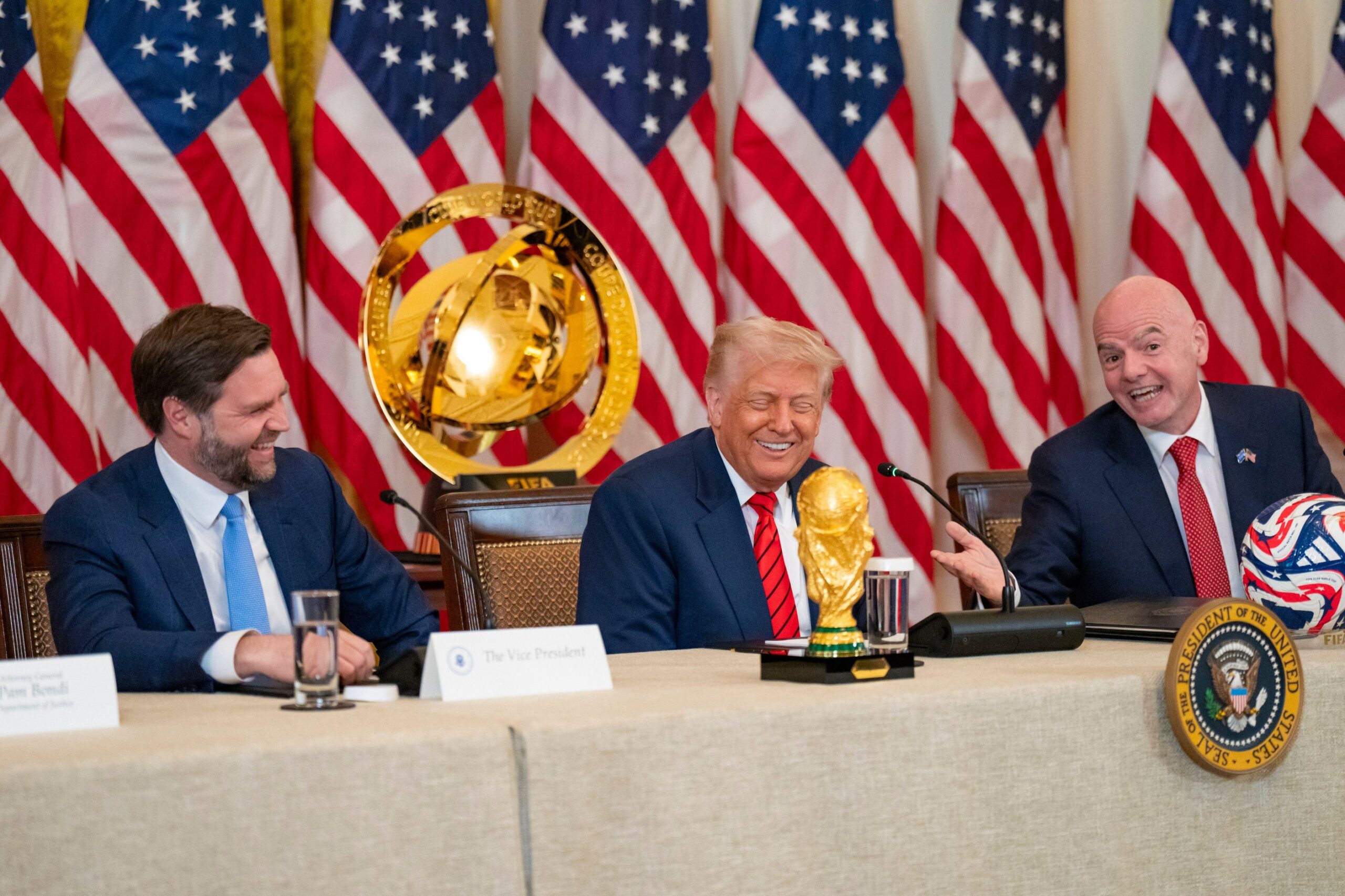
A new policy brief published today by FairSquare makes the case for an enhanced role for the European Union in the reform of sports governance.
The brief, Laws for the Game, produced in collaboration with Dr Jan Zglinski of the London School of Economics, starts from the position that greater public control of sport is needed, with serious and systematic misgovernance at football’s world governing body, FIFA, providing a particular case in point. It lays out the advantages of EU regulation over national and international action, the legal basis for this regulation, the form it could take, and the steps required to make it happen.
Nick McGeehan, co-director of FairSquare, said:
“We shouldn’t accept the notion that sports governing bodies like FIFA will remain immune from regulation. There are ways to hold them publicly accountable and to insist that they discharge their critical missions in ways that truly benefit athletes and supporters. The EU could hold the key to doing that.”
Dr Jan Zglinski, Associate Professor, LSE Law School, said:
“Sports governance is in pressing need of reform. The EU is uniquely positioned to make a positive contribution here due to its transnational character, relative immunity to pressure from federations, as well as the ability to make and enforce laws.”
The policy brief argues that sport is too important to govern itself, and that sports governing bodies have repeatedly demonstrated that they are incapable of effective self-regulation. FIFA provides an illustrative example. Football’s world governing body has been the subject of multiple corruption scandals most notably in 2015 when the US Department of Justice indicted many of its senior officials on racketeering and corruption. Internal reform attempts have repeatedly failed to deliver good governance, and the manner in which FIFA has manipulated its own bidding guidelines to ensure Saudi Arabia will host the 2034 men’s World Cup shows once more that the organisaton remains accountable to nobody but itself.
Why the EU?
Sport has become vitally important, socially, politically, and economically – and its impacts, positive and negative, are felt globally. This calls for a regulatory response that goes beyond national borders. Not only do EU laws apply to all the 27 member states of the Union, they can also be formulated so that they apply to actors located outside the Union. For example, the reach of Digital Services and Market Acts – in effect since earlier this year – extends to “big tech” companies based in the US. The size and importance of the EU’s internal market encourages voluntary compliance of non-European businesses and organisations with European laws, so that they can continue to operate and trade in the EU. This dynamic, which is called the “Brussels Effect”, could be brought to bear in sports regulation.
Additionally, the EU is more immune to pressure exercised by sports governing bodies – which may be resistant to regulation – than individual states, whose teams and athletes can more easily be excluded from competitions if governing bodies object to government regulation. The EU’s strength in this respect is that it does not participate in sporting competitions.
How could the EU act?
The EU has been active in the field of sport for decades. The Court of Justice of the European Union (CJEU) has reviewed decisions of sports governing bodies on a number of occasions, perhaps most famously in the Bosman case but, more recently, also in Superleague and Diarra. The European Commission has signed three cooperation agreements with UEFA since 2014.
However dedicated EU legislation, for example in the form of a European Sports Act, has the potential to impose the most consequential and transformational reforms. It could lay down requirements concerning the institutional structure, decision-making processes, and social responsibilities of sports governing bodies, to create a coherent, predictable, and binding set of rules for the sector. New sports legislation in several Member States, such as France, Spain, and Poland, as well as in the UK, formerly a member, could serve as sources of inspiration.
What would be the legal basis for EU action?
Article 114 of the Treaty of the Functioning of the European Union (TFEU), gives the EU the authority to harmonise the legal rules in a given field when regulatory differences between EU Member States have a direct effect on the functioning of the single market or cause significant distortions of competition. Sport is a significant element of the internal market, accounting for over 2% of the EU’s GDP and 3% of its employment. The Court of Justice accepts that it, if exercised at professional level, constitutes an economic activity and, as such, falls into the scope of the European Treaties meaning. This means that legislation aimed at governing sports could be legitimately designed as an instrument of internal market law, as long as it is directed at professional sports.
How would we get there?
The European Commission, the European Parliament, and, importantly, national governments which must approve EU legislation through the Council would all need to be persuaded of the importance of a dedicated sports act. The support of sports reform advocates, experts in sports law and policy, as well as progressive administrators, officials, and federations will be critical to applying the requisite pressure to political decision-makers. The Danish organisation Play The Game, who have proposed the setting up of a World Anti-Corruption Agency for sport, have provided a blueprint for the type of coalition building that could make European sports legislation a reality. The EU has frequently expressed its commitment to value-based sports, underlining the significance of promoting principles such as democracy, transparency, solidarity, equality as well as the respect for human rights. The policy brief argues that it is time to put this stated ambition into action.
Background
FairSquare is a research and advocacy non-profit organisation that promotes better, more democratic governance to prevent sporting institutions contributing to social harms. Dr Zglinski is an expert on sports law and regulation, as well as EU constitutional and internal market law.


